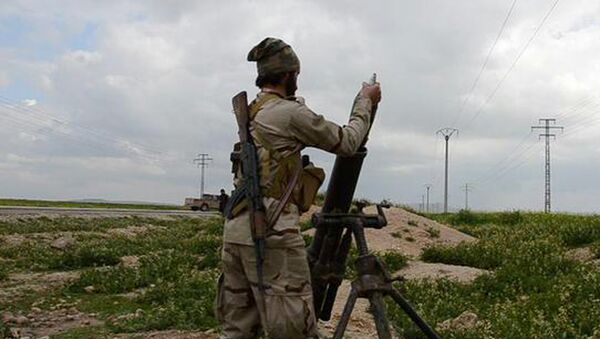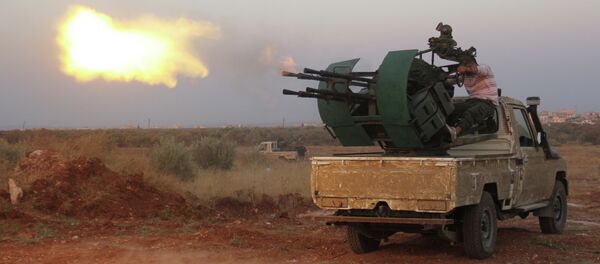The genuine story of the beginning of the Syrian conflict remains largely neglected; Western public have been deluded into believing that the mess was triggered by Bashar al-Assad's brutality, however, the military standoff between Syrian armed insurgents and Damascus is only a part of the story, US author Eric Zuesse stresses.
The roots of the ongoing Syrian crisis partly lay in Washington itself.
"The Obama Administration itself was taking advantage of not only the 'Arab Spring' protests throughout much of the Arab world, but, specifically, of an ongoing economic catastrophe in Syria that had started five years before the anti-Assad demonstrations did: an extended drought," the historian narrated in his article for Strategic Culture Foundation.
"UNFAO (Food and Agriculture) Syria Representative Abdullah Bin Yehia is seeking USG commitment to the UN Office for Coordination of Humanitarian Affairs 2008 Drought Appeal. Yehia proposes to use money from the appeal to provide seed and technical assistance to 15,000 small-holding farmers in northeast Syria in an effort to preserve the social and economic fabric of this rural, agricultural community. If UNFAO efforts fail, Yehia predicts mass migration from the northeast, which could act as a multiplier on social and economic pressures already at play and undermine stability Syria," the report read.
According to the report the north-east Syrian province of Al-Hasakah was hardest-hit by the country's worst drought in four decades. The UN Office for Coordination of Humanitarian Affairs (OCHA) launched an appeal on September 2008 requesting $20.23 million to assist the people of Syria. However, by November there had "not appeared to have been much movement on the part of donor countries to fund the appeal."
The US government did not rush to provide the Syrian government and its people with the much-anticipated assistance.
Instead, then newly appointed US President Barack Obama apparently decided to use the situation in accordance with Washington's geopolitical plans, Zuesse remarked.
While slamming the Syrian government for growing instability in the region, US experts fail "to criticize the US Government itself for having turned down the Syrian Government's years-long pleadings for assistance," he noted.
Much in the same vein, the Western mainstream media distorted the story of how exactly the violent standoff between Damascus and Syrian militants began, placing the whole blame on Assad, Zuesse noted citing Jonathan Marshall, a California-based independent researcher.
In his article for Consortiumnews.com Marshall called attention to the fact that repeated "deadly provocations against Syrian government forces" committed by armed elements in Syria since the very beginning transformed the protest into a violent conflict.
Again, instead of brokering peace in the region, Washington decided to add some more fuel to the fire to escalate the crisis.
"Unmarked NATO warplanes are arriving at Turkish military bases close to Iskenderum on the Syrian border, delivering weapons from the late Muammar Gaddafi's arsenals as well as volunteers from the Libyan Transitional National Council who are experienced in pitting local volunteers against trained soldiers, a skill they acquired confronting Gaddafi's army," former CIA intelligence analyst Philip Giraldi reported in December 2011.
According to Marshall, Washington's neocons use the human rights issue as a "convenient bludgeon" to topple "critical Arab regimes" in Syria, Libya and Iraq as a part of the grand plan for redrawing the map of the Middle East.
"Marshall's news report about the origin of the Syrian war was published at Consortium News on 20 July 2015… [however] this blockbuster three-month-old news-report still remains news in the US, even today," Eric Zuesse highlights.





